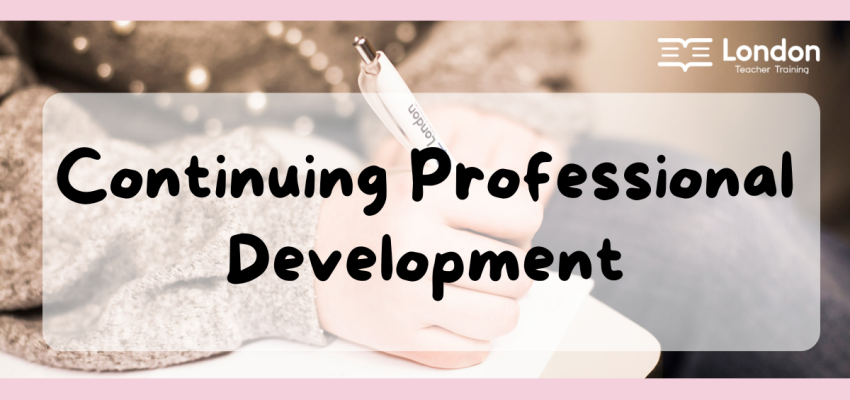Wednesday, April 21, 2021

Being a teacher is one of those jobs in which you never know what you’re going to encounter in class on any given day. There are so many variables that make teaching both exciting and nerve-wracking at the same time. One thing’s for sure, there is so much that we, as teachers, can gain from being in the classroom and the students that we teach.
We all know the feeling when we come out of a class that’s gone really well; the euphoria and feeling that we have genuinely made some difference to the ss’ learning. We also know the feeling of disappointment and frustration that comes with a lesson that hasn’t quite gone as planned, and how that feeling can linger for days. It’s impossible to expect to have those euphoric moments every time we teach, but it is possible to learn from and work on the elements of our teaching that don’t always go quite so well.
The very variable nature of teaching means that we need to constantly seek ways to develop ourselves and to make sure we stay at the top of our game. In this blog post, we’re going to outline the reasons why you should consider more professional development and then how you can easily integrate this into your working week.
So, why should we commit to some form of professional development as a teacher?
Great, now we know why we need to develop but how do I go about it? Here are 10 ways you can make professional development part of your teaching journey.
1. Attend conferences
These are a great way of acquiring new techniques and also meeting other teachers. There are so many options at both national and international level as well as online and in person events. Just do some research and find ones that might be of interest to you.
2. Do online courses
The internet is such a great tool for learning- you can even do an entire university degree online. Whilst an entire degree might be too much, there are many great online courses which will help you develop different areas of your teaching. Check out our online learning platform catalogue for the online courses that we offer.
3. Reading blog posts (like this!)
You’ve already made the first step to becoming a developing teacher by reading this post. There are so many great blog posts out there, written by industry experts and experienced teachers. Search for them by key words or terms and see what Google comes up with.
4. Upgrade your grammar knowledge
There is always room for development in this area, no matter how many years you have been teaching. Take one of the coursebooks you are teaching from and have a look at the grammar points it covers- are you 100% comfortable teaching all of them? For those which you have your doubts about, crack open a good grammar book and get stuck in. Don’t forget to make notes!
5. Attend free webinars
With the increased use of the internet for professional development and training over the past few years, there has been a surge in the number of institutions offering free webinars on a number of different topics. Check out the ones that we offer on the webinar section of our online learning platform.
6. Conduct peer observation
Observing one of your colleagues can be a fantastic way of learning how different techniques actually work in the classroom. Ask other teachers if they’d be happy for you to observe them and, of course, check with your Director of Studies beforehand.
7. Observe classes online
There are some great lessons which teachers have filmed of themselves teaching certain language points and uploaded onto platforms such as YouTube. Search for the language point you want to see taught and see what videos are available.
8. Take a qualification
It goes without saying that taking a teaching qualification is going to benefit you greatly in your professional life. There are online and in person options for most official teaching qualifications, such as CELTA and DELTA. Take a look at the CELTA section of our website to see what courses we offer.
9. Talk to your colleagues
Your colleagues are often the best source of wisdom when it comes to solving the day-to-day issues you may be having in your classes. Having problems teaching from a particular coursebook? Ask a teacher who teaches from the same one how they are dealing with it.
10. Keep a reflective journal
Lastly, it’s a great idea to keep a reflective journal so that you can record great things that you have done in class and also note the things that didn’t go as well. Keeping a record helps you actively work on the different elements of your teaching that you have noted down and, most importantly, will mean that you don’t forget what you’ve done.
Happy teaching and developing from the Teacher Training Team at London School of Languages! If you have any questions about any of the teacher training that we offer or any of the information given in this post, please don’t hesitate to get in touch with us at teachertraining@london-school.com.
[1] Foord, D., 2017. The Developing Teacher. 2nd ed. England: Delta Publishing by Klett.